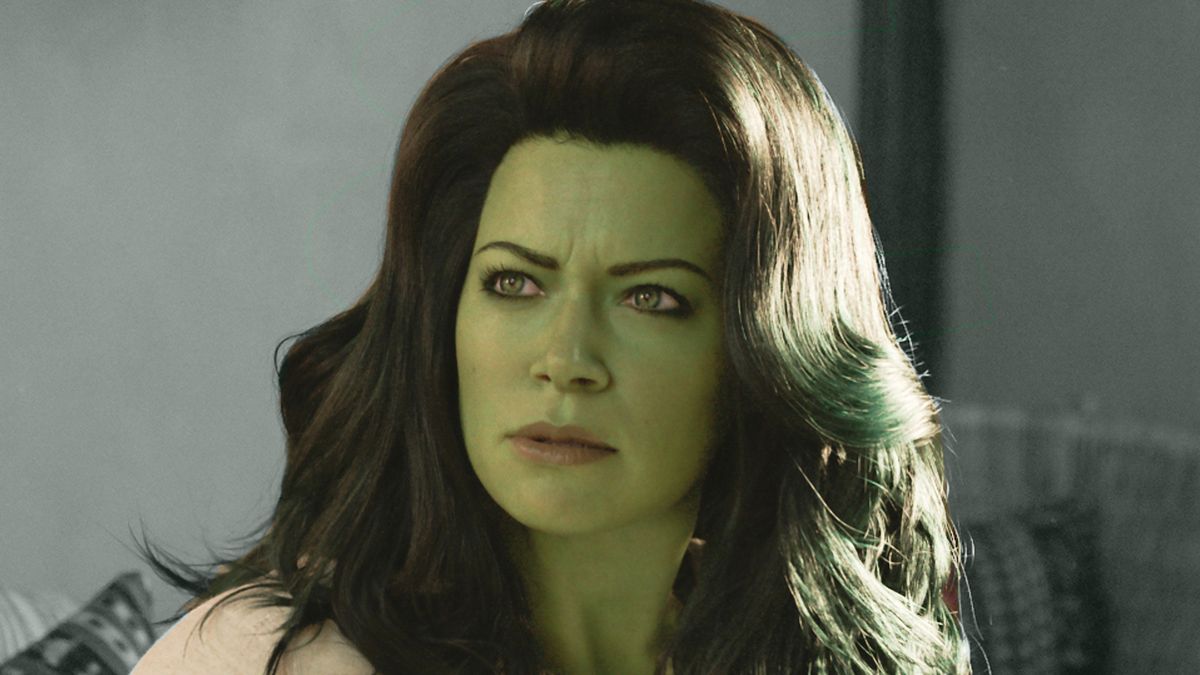Marvel has never really known what to do with She-Hulk. Since her comic-book introduction in the early '80s, she's been an Avenger, a member of the Fantastic Four, and even the leader of an all-female superhero squad called the A-Force. Rarely has a story ever properly focused solely on superhero lawyer Jennifer Walters, a character who only started passing the Bechdel test around 2004. Usually, when the comics weren't selling, Marvel would turn her into a pin-up model for horny nerds—and they even risked breaking the rules set by the Comics Code Authority just to do it.
That's all to say: with She-Hulk: Attorney at Law, which premiered its first episode this Wednesday, the Marvel Cinematic Universe had a genuine opportunity to explore what makes the character so intriguing. Instead? We're sitting on a remote island in Episode One with Jen's cousin, Bruce Banner (Mark Ruffalo), who spends about a half hour learning that Jen is better at being the Hulk because she's a girl and not a boy.
As a superhero lawyer, is there not an obvious story here about how difficult it is to help people in this world when you are so defenceless yourself? How Jennifer Walters can go from feeble to Hulk in the blink of an eye—which barely helps her when she's faced with the law? It's no wonder fellow lawyer Matt Murdock spends his nights beating down on baddies to get some real justice.
In her comics catalog, Jennifer Walters never wanted to be a superhero, but she still wanted to spend her career helping people. Some of the best She-Hulk stories focus on cases where the hero tries to help people faced with real-world problems that have merely been exacerbated by the fact that they possess superhuman abilities. Or of course, when she gets into Jessica Jones-style badassery in an era affectionately titled, "Single Green Female." Yet, in She-Hulk: Attorney at Law, you can almost hear the higher-ups at Disney screaming at the creators to keep the boys happy, too, by including a rotation of cameos from the likes of Tim Roth and Benedict Wong—both of whom play characters that the MCU never really had to hear from again.
Back in 2016, writer Mariko Tamaki gave Walters her best story to date, even doing so with a comic finally titled, Hulk. Over six issues, Jen takes on a new client, thanks to Maise Brewn, a meek yoga instructor who recently underwent an accidental superhuman transformation of her own. Brewn is also a victim of assault, shutting herself in her apartment. Her frightening new appearance and reclusive nature land her an eviction notice from her landlord, so she goes to Jen for legal help. When Jen has trouble with the case, however, Maise grows impatient and tries to take justice into her own hands. By freaking out and creating an anxiety-driven fear monster—which She-Hulk has to fight off!—Maise ends up getting herself arrested for reckless endangerment.
In this story, Jennifer Walters couldn't protect her client as an attorney or as She-Hulk. It's crushing. "I'm a monster still breathing in a world horrible and still worth fighting for," she eventually reflects afterward. It feels like a massive turning point for Walters—the kind of depth that the increasingly algorithmic MCU ignores, instead delivering a story built on assembly-line quips and a misunderstanding of what makes their roster of characters so appealing. Hopefully, the back half of the season learns that there's more to the Hulk life than being big, green, and telling bad jokes.
Josh Rosenberg is an Assistant Editor at Esquire, keeping a steady diet of one movie a day. His past work can be found at Spin, CBR, and on his personal blog at Roseandblog.com.












